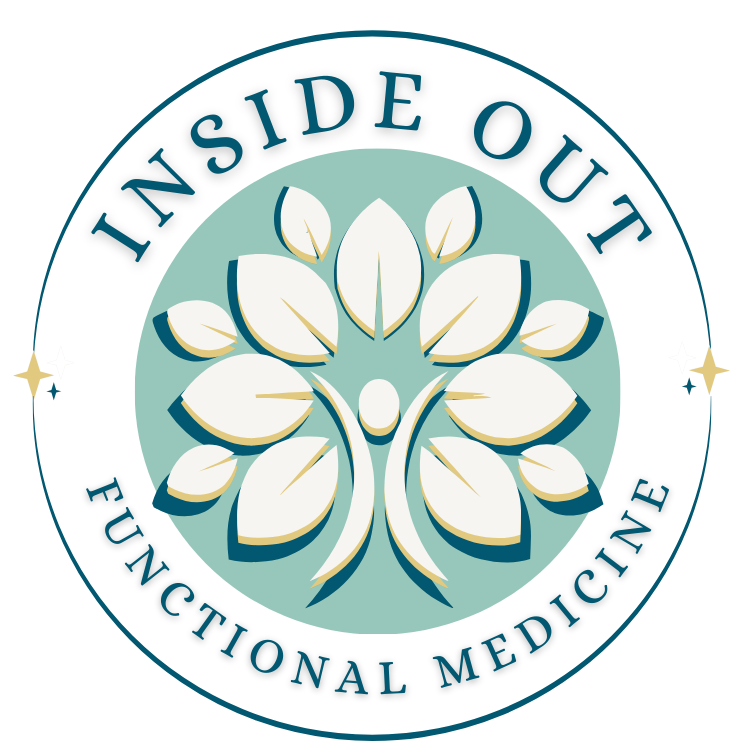Stay informed with the latest insights and resources
Our team of experts shares valuable tips, success stories, and practical advice to support you on your wellness journey.


Are You Micronutrient Deficient? Signs and Solutions

Are You Micronutrient Deficient? Signs and Solutions
Micronutrient deficiencies have emerged as a significant global health issue, affecting billions of people and contributing to a range of health problems such as weakened immune systems, poor cognitive development, and increased susceptibility to chronic diseases.
Recent studies estimate that over 5 billion people worldwide do not consume adequate amounts of essential nutrients, including iodine, vitamin E, and calcium. These deficiencies are further complicated by poor nutrient absorption, often resulting from compromised gut health.
In this post, we will explore the most common micronutrient deficiencies, their causes, where to find these nutrients in food, and the best forms of supplementation. We will also discuss why many individuals struggle to absorb essential nutrients and how poor gut health can exacerbate these deficiencies as well as functional testing options that can help assess micronutrient levels and guide targeted interventions.
Let’s dive in!
Top Micronutrient Deficiencies
1) Iodine
Iodine is an essential micronutrient necessary for proper thyroid function, which regulates metabolism. An estimated 68% of the global population suffers from iodine deficiency, primarily due to limited access to iodine-rich foods. Regions with iodine-depleted soil and populations that do not consume marine foods are particularly vulnerable.
Food Sources: Good dietary sources of iodine include seaweed, iodized salt, dairy products, and fish.
Supplementation: Iodine supplements, usually in the form of potassium iodide, can help meet daily requirements. However, excessive iodine intake can lead to thyroid dysfunction, so it is advisable to consult a healthcare provider before starting any supplementation.
2) Vitamin E
Vitamin E functions as a powerful antioxidant that protects cells from oxidative damage. Despite its importance, around 67% of people worldwide do not consume enough vitamin E. This deficiency often stems from diets low in seeds, and nuts, which are the primary sources of this vitamin. Additionally, fat malabsorption disorders can impair vitamin E absorption.
Food Sources: Excellent sources of vitamin E include sunflower seeds, almonds, spinach, and avocados.
Supplementation: Natural forms of vitamin E, such as d-alpha-tocopherol, are better absorbed than synthetic versions. Individuals with absorption issues may benefit from liquid or oil-based supplements.
3) Calcium
Calcium is crucial for bone health, muscle function, and nerve transmission. Despite its well-known significance, approximately 66% of individuals do not consume adequate calcium. Dairy-free diets, low consumption of fortified foods, and impaired absorption—often due to low stomach acid—are common causes of calcium deficiency. While calcium supplements are commonly used to meet daily requirements, they have sparked debate in recent years. Some studies have linked excessive calcium supplementation with an increased risk of heart disease, as high supplemental doses can lead to calcium deposits in arteries. These potential risks have led experts to recommend prioritizing calcium from whole food sources, as they are typically more easily absorbed and come with additional nutrients that support bone health.
Food Sources: Good sources of calcium include high-quality dairy products, leafy greens like kale, and sesame seeds.
4) Iron
Iron deficiency is one of the most prevalent nutrient deficiencies globally, impacting approximately 65% of people. It is especially common among women of reproductive age due to menstruation and among individuals with poor dietary intake or malabsorption issues. Iron is vital for producing hemoglobin, which transports oxygen throughout the body.
Food Sources: Red meat, lentils, spinach, and fortified cereals are good sources of iron.
Supplementation: Ferrous sulfate is commonly prescribed for iron deficiency. However, individuals with sensitive stomachs may prefer iron bisglycinate, which is gentler on the digestive system. Vitamin C-rich foods or supplements can significantly enhance iron absorption.
4) Riboflavin (Vitamin B2)
Riboflavin plays a key role in energy production and cellular function. Approximately 55% of the global population does not consume enough riboflavin, often due to limited intake of animal products or malabsorption disorders.
Food Sources: Foods rich in riboflavin include eggs, dairy products, lean meats, and green vegetables such as spinach.
Supplementation: Riboflavin is typically available in most multivitamins or as a standalone supplement. Being water-soluble, it is important to maintain consistent intake for adequate levels.
5) Folate (Vitamin B9)
Folate is essential for DNA synthesis, red blood cell formation, and proper brain function. Around 54% of the global population experiences folate deficiency, largely due to low intake of leafy greens, beans, and citrus fruits. Folate deficiency can also be worsened by certain medications or gut issues that impair absorption.
Food Sources: Excellent sources of folate include spinach, asparagus, lentils, and fortified grains.
Supplementation: Folic acid or methylfolate (especially for those with the MTHFR gene mutation) is available in supplement form.
6) Vitamin C
Vitamin C is a crucial antioxidant that supports immune function and collagen synthesis. Despite its importance, approximately 53% of individuals do not consume adequate amounts of vitamin C. This deficiency is often due to low intake of fruits and vegetables, particularly in regions with limited access to fresh produce.
Food Sources: Rich sources of vitamin C include citrus fruits, bell peppers, strawberries, and broccoli.
Supplementation: Ascorbic acid is widely available, though buffered versions may be gentler on the stomach and suitable for those with digestive issues.
Causes of Nutrient Deficiency and Absorption Issues
While many people may consume foods containing essential nutrients, they still may not absorb these nutrients adequately due to poor gut health. Several factors can contribute to poor nutrient absorption:
Chronic Inflammation: Inflammation of the gut lining can impair nutrient absorption. Conditions such as Crohn’s disease, celiac disease, and irritable bowel syndrome (IBS) are common culprits. Chronic inflammation can damage the villi in the small intestine, reducing the surface area available for absorption.
Low Stomach Acid (Hypochlorhydria): Stomach acid is crucial for breaking down and absorbing nutrients like calcium, magnesium, iron, and vitamin B12. Low levels of stomach acid, often due to aging or the use of acid-blocking medications, hinder nutrient uptake.
Leaky Gut Syndrome: A compromised gut lining allows toxins and undigested food particles to enter the bloodstream, triggering an immune response and further damaging the intestinal wall. This can lead to malabsorption of nutrients such as zinc, iron, and B vitamins.
Gut Dysbiosis: Imbalances in gut flora, such as an overgrowth of harmful bacteria or yeast, can negatively affect nutrient synthesis and absorption. Healthy gut bacteria are essential for synthesizing certain vitamins, like B12 and K2, and aiding in digestion.
Supporting Nutrient Absorption and Gut Health
To support optimal nutrient absorption, it is important to focus on improving gut health. Here are a few strategies:
Eat a Diverse Diet: Incorporating a variety of fiber-rich, nutrient-dense foods helps feed beneficial gut bacteria and ensures a broad spectrum of vitamins and minerals.
Manage Stress: Chronic stress can weaken the gut lining and alter digestion, making it harder to absorb nutrients.
High-Quality Supplementation: High-quality supplementation is essential for effectively addressing nutrient deficiencies and supporting overall health. Bioavailable forms of vitamins and minerals ensure better absorption and efficacy in the body. When selecting supplements, it’s important to choose those that are third-party tested, free from unnecessary additives, and formulated to meet individual health needs, as this can significantly impact the effectiveness of supplementation in achieving optimal health.
Probiotics and Prebiotics: Probiotics can help restore healthy gut flora, while prebiotic fibers feed the good bacteria. Foods like yogurt, kefir, sauerkraut, and garlic can support a balanced gut microbiome.
Digestive Enzymes: Supplementing with digestive enzymes can help break down foods more effectively, especially for those with low stomach acid or pancreatic insufficiency.
Address Underlying Conditions: Identifying and addressing conditions like leaky gut, IBS, or dysbiosis can significantly improve nutrient absorption and overall health.
Functional Testing for Micronutrient Levels
Functional testing can provide valuable insights into an individual’s micronutrient status, helping to identify specific deficiencies and guide targeted interventions. Here are some common types of functional tests available:
Blood Tests: Standard blood tests can measure levels of certain vitamins and minerals, such as vitamin D, B12, iron, and folate. These tests help determine if deficiencies exist and can guide dietary or supplementation choices.
Comprehensive Metabolic Panel (CMP): A CMP can provide information about electrolytes, liver function, kidney function, and protein levels, which can indicate overall nutritional status and identify potential deficiencies.
Micronutrient Testing: Specialized laboratories offer micronutrient testing that assesses a wide range of vitamins, minerals, amino acids, and antioxidants. These tests can evaluate both intracellular and extracellular nutrient levels, providing a more comprehensive picture of nutrient status.
Organic Acids Test (OAT): The OAT measures metabolic byproducts in the urine that can indicate deficiencies in B vitamins, fatty acids, and amino acids. This test can help identify imbalances that affect energy production and overall health.
Stool Tests: Comprehensive stool testing can assess gut health and microbiome composition, which can impact nutrient absorption. Tests may evaluate levels of beneficial bacteria, the presence of pathogenic organisms, and digestive function.
Micronutrient deficiencies are a pressing global health issue, with billions of people lacking essential vitamins and minerals in their diets. By improving gut health and making thoughtful dietary choices, individuals can enhance their absorption of these crucial nutrients, leading to better overall health and vitality.
Functional testing can further empower individuals by pinpointing specific deficiencies and guiding targeted interventions, ensuring that they receive the nutrients they need to thrive. For those who struggle with absorption or face specific health challenges, targeted supplementation under the guidance of a healthcare professional like us can bridge the gap and optimize nutrient intake.
Sources
Passarelli, Simone et al. "Global estimation of dietary micronutrient inadequacies: a modelling analysis." The Lancet Global Health, Volume 12, Issue 10, e1590 - e1599.
World Health Organization. "Vitamin and Mineral Deficiency (VMD)." WHO.
De Benoist, Benedicte et al. "Iodine Status Worldwide: WHO Global Database on Iodine Deficiency." World Health Organization, 2004.
"Dietary Reference Intakes for Calcium and Vitamin D." Institute of Medicine, 2011.
"Iron Deficiency Anemia." Centers for Disease Control and Prevention, 2021.
"Vitamin E: Fact Sheet for Health Professionals." National Institutes of Health, 2021.
"Folate." National Institutes of Health, 2021.
"Vitamin B12 Fact Sheet for Health Professionals." National Institutes of Health, 2021.
"The Role of Gut Microbiota in Nutrition and Health." Nature Reviews Gastroenterology & Hepatology, 2020.
"Nutritional Deficiencies and Their Role in Health and Disease." Journal of Nutrition and Metabolism, 2021
stay up to date
on what's new in Functional Medicine


